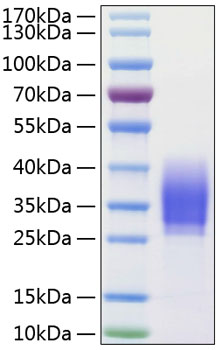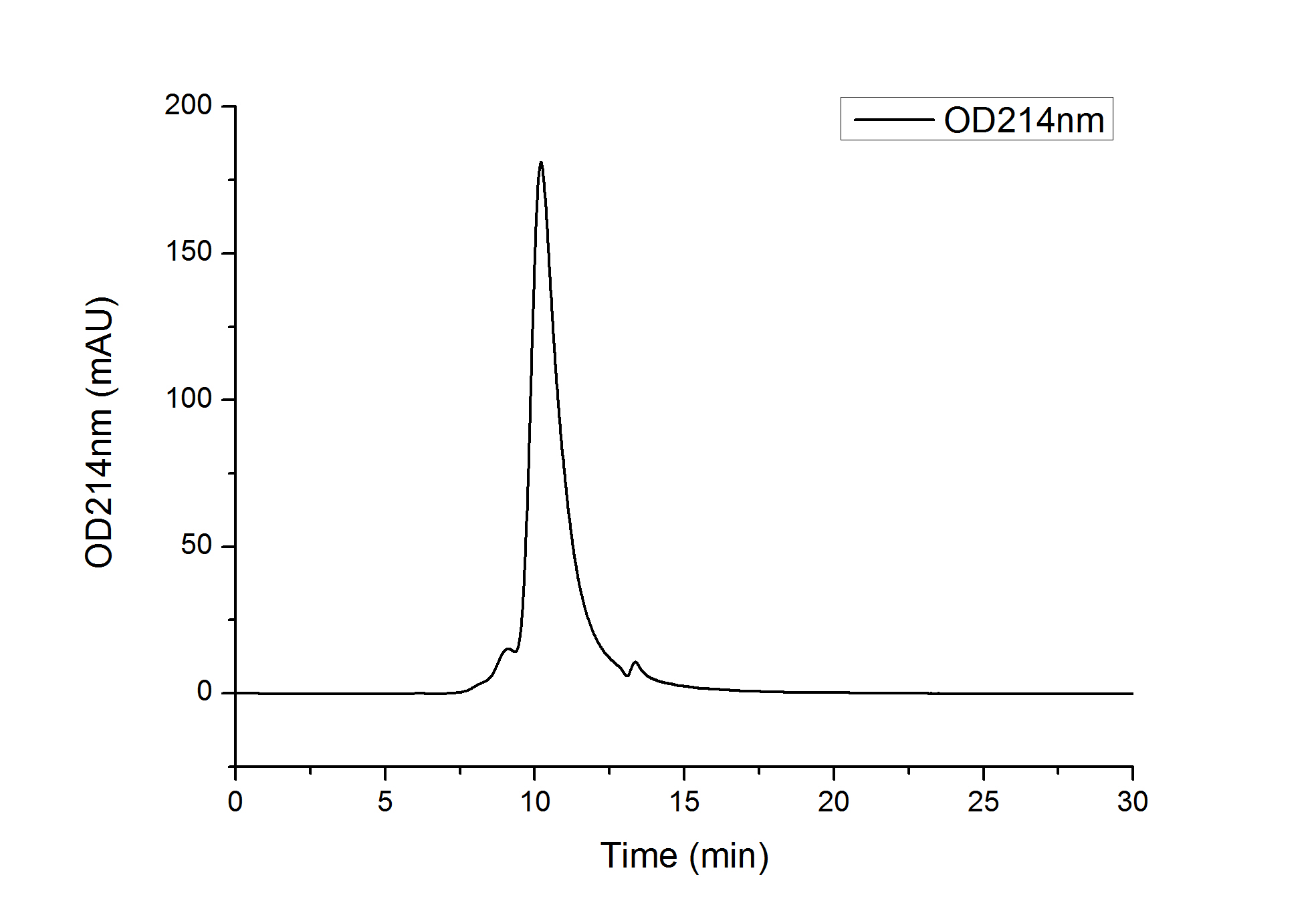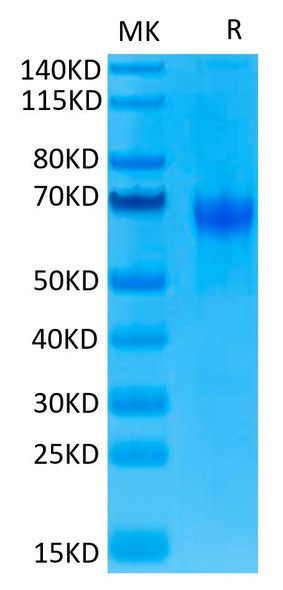Description
Recombinant Human PD-1/PDCD1/CD279 Protein
The Recombinant Human PD-1/PDCD1/CD279 Protein is a biologically active recombinant protein that plays a significant role in various cellular processes and signaling pathways in human biology. This protein is widely employed in immunological research, cell biology studies, protein-protein interaction analyses, and therapeutic development, providing researchers with a reliable tool for investigating PD-1/PDCD1/CD279 function and its implications in health and disease.
This product (SKU: RPCB0270) is produced using advanced expression systems and features a C-His tag for convenient detection and purification. The protein exhibits a calculated molecular weight of 16.89 kDa with an observed molecular weight of 30-40 kDa under denaturing conditions, achieving ≥ 95 % as determined by SDS-PAGE;≥ 90 % as determined by HPLC.. Functional bioactivity has been validated through rigorous quality control assays, confirming its suitability for demanding research applications.
Key Features
| High Purity by Affinity Chromatography | |
| Mammalian & Bacterial Expression Systems | |
| High lot-to-lot consistency via strict QC |
| Product Name: | Recombinant Human PD-1/PDCD1/CD279 Protein |
| SKU: | RPCB0270 |
| Size: | 10 μg , 20 μg , 50 μg , 100 μg |
| Reactivity: | Human |
| Synonyms: | PDCD1, CD279, PD-1, PD1, SLEB2, hPD-1, hPD-l, hSLE1, programmed cell death 1, PD-1, CD279, PD1, SLEB2, hPD-1, hPD-l, hSLE1, PD-1/CD279 |
| Tag: | C-His |
| Calculated MW: | 16.89 kDa |
| Observed MW: | 30-40 kDa |
| Gene ID: | 5133 |
| Protein Description: | High quality, high purity and low endotoxin recombinant Recombinant Human PD-1/PDCD1/CD279 Protein (RPCB0270), tested reactivity in HEK293 cells and has been validated in SDS-PAGE.100% guaranteed. |
| Endotoxin: | < 0.1 EU/μg of the protein by LAL method. |
| Purity: | ≥ 95 % as determined by SDS-PAGE;≥ 90 % as determined by HPLC. |
| Formulation: | Lyophilized from a 0.22 μm filtered solution of PBS, pH 7.4.Contact us for customized product form or formulation. |
| Bio-Activity: | Measured by its binding ability in a functional ELISA. Immobilized Recombinant Human PD-1 at 5 μg/mL (100 μL/well) can bind Recombinant Human PD-L1 with a linear range of 0.5-2 μg/mL. |
| Reconstitution: | Centrifuge the vial before opening. Reconstitute to a concentration of 0.1-0.5 mg/mL in sterile distilled water. Avoid vortex or vigorously pipetting the protein. For long term storage, it is recommended to add a carrier protein or stablizer (e.g. 0.1% BSA, 5% HSA, 10% FBS or 5% Trehalose), and aliquot the reconstituted protein solution to minimize free-thaw cycles. |
| Storage: | Store at -20℃.Store the lyophilized protein at -20℃ to -80 ℃ up to 1 year from the date of receipt. After reconstitution, the protein solution is stable at -20℃ for 3 months, at 2-8℃ for up to 1 week. |
This protein is a cell surface membrane protein of the immunoglobulin superfamily. This protein is expressed in pro-B-cells and is thought to play a role in their differentiation. In mice, expression of this gene is induced in the thymus when anti-CD3 antibodies are injected and large numbers of thymocytes undergo apoptosis. Mice deficient for this gene bred on a BALB/c background developed dilated cardiomyopathy and died from congestive heart failure.








